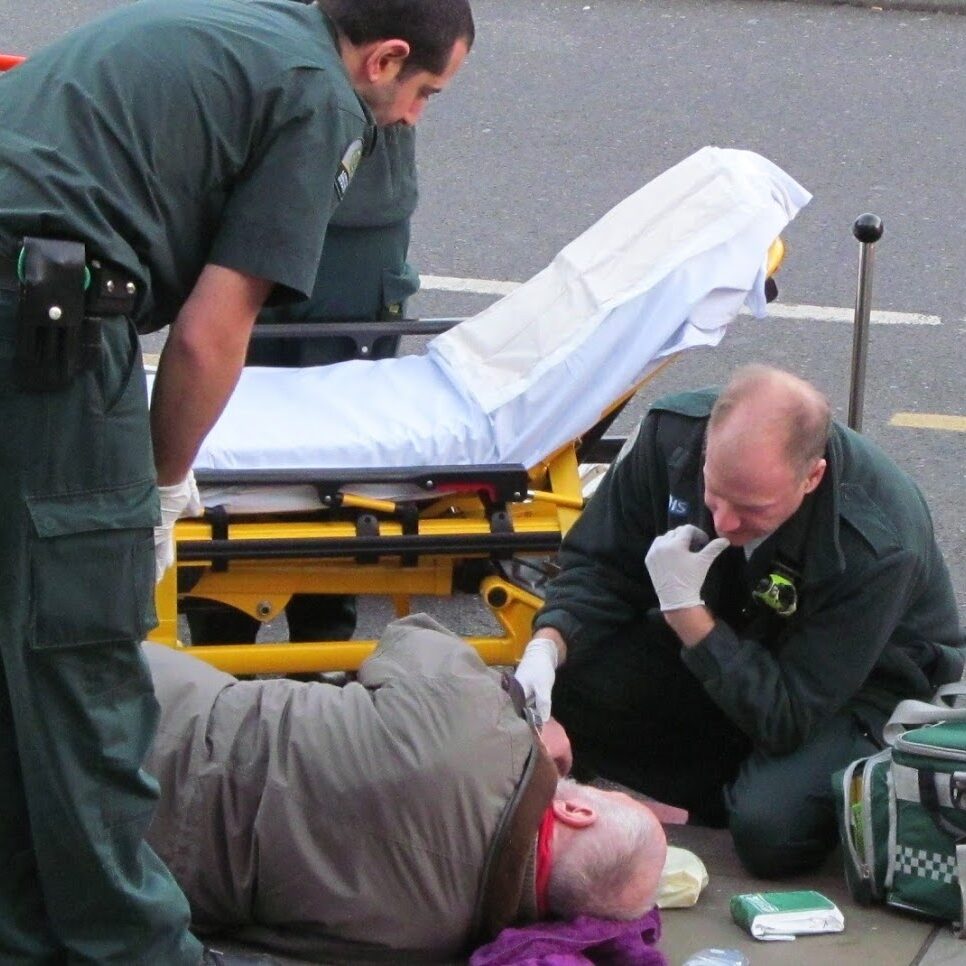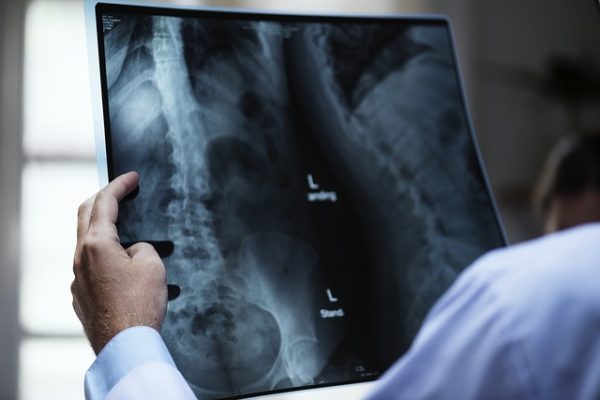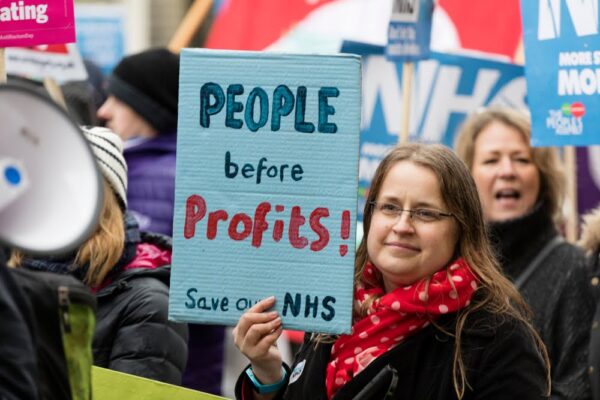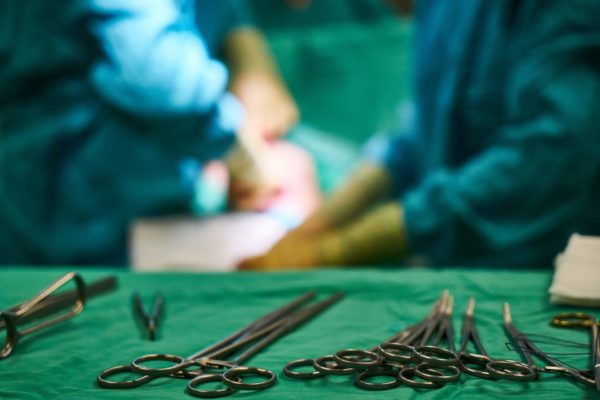
The NHS is often judged by patients and the media by the performance of its emergency care services. Figures for how long people wait in A&E or for ambulances to arrive are a regular feature of reports.
Emergency services are a core feature of the NHS, yet outside of A&E and emergency ambulance services, much of the care we rely on in the event of an emergency has been privatised.
Privatisation
Privatisation of the emergency care services has focused on contracts that cover out-of-hours care outside of A&E and the emergency ambulance service, such as NHS 111 and urgent care centres.
A major trigger for privatisation was a change in GPs contract in 2004 which meant that they could opt out of providing out-of-hours (OOH) care to their patients. With GPs no longer providing out of hours care, commissioners sought provision elsewhere and there were a number of private companies that gained substantial contracts around the country to provide phone advice and home visits.
The privatisation process was then accelerated by the setting up of the urgent care walk-in centres known as the 'Darzi' clinics after Lord Darzi, which offered contracts for these centres to private companies, and then by the Health and Social Care Act in 2012.
Companies that saw the potential in gaining contracts for the 'Darzi' clinics include Care UK, now Practice Plus Group, and this company is now a leading company in the area of out-of-hours care. In other areas, consortia of local GPs were awarded the contracts. In both cases, the changes allowed profit driven entities to gain a foothold in the primary care market.
Contracts over the past few years have focused on producing an integrated urgent care system - NHS 111, out-of-hours call-out, and urgent care centres. Recent contracts include the following:
- In January 2021 several west London CCGs awarded Practice Plus Group Urgent Care Limited and London Central and West Unscheduled Care Collaborative Ltd, a £58.62m contract for the provision of the call handling service of 111; the clinical assessment service for 111; and GP out of hours services in their area.
- In November 2020, several NHS North and Mid Mersey NHS CCGs awarded Primary Care 24 Ltd a £82.85m contract for provision of GP Out of Hours (GP OOH) and Integrated Urgent Care Services in the area.
- In June 2020, Doncaster CCG awarded FCMS (NW) Ltd a £53.3m contract for provision of urgent and emergency care (UEC) services across Doncaster.
Issues
NHS 111 and out-of-hours care
As one of the earliest sectors to see significant privatisation, out-of-hours care and NHS 111 was also one of the first sectors to see evidence of the problems associated with the involvement of private companies.
Private providers in this sector have been criticised for cost-cutting leading to a reduction in quality of care and inadequate provision of staff. There have also been issues with companies going bankrupt and pulling out of contracts with little notice.
In 2015, researchers at the University of Exeter Medical School reported that patients were more likely to be dissatisfied with their out-of-hours service if it was run by a commercial provider. Whereas, the researchers found that NHS providers scored highest on timeliness, patient confidence in doctors, and overall care experience.
Failures in the contracts with private companies can be found here.
Issues with private companies in emergency care include the following:
PELC Limited
Four urgent care treatment centres run by Partnership of East London Co-operatives (PELC) Limited were rated ‘inadequate’ by the Care Quality Commission (CQC) in early 2023 and put in special measures. Two of the centres are attached to hospital emergency departments and treat the majority of patients that arrive with minor injuries and illnesses.
PELC is a not-for-profit organisation formed in 2004 by local GPs, that delivers UTCs across east London and west Essex, under a contract with the North East London integrated care system (ICS).
Harmoni
One of the first major scandals in emergency care involved the company Harmoni (now part of Practice Plus Group), which was criticised in 2011 for excessive waiting times and cuts to the service. However, the most high profile case was in 2012 when a seven-week-old baby boy died while in the care of Harmoni's out-of-hours GP service. Harmoni's service was described as "wholly inadequate" by a coroner in February 2013.
Serco in Cornwall
A major scandal blew up in 2012 surrounding the out-of-hours service in Cornwall provided by the services company Serco under contract to Kernow CCG.
In 2012, Serco had to admit that some of its staff had falsified data to make the company’s performance appear better than it was and whistleblowers had raised concerns about poor staffing levels. In 2013 Serco unsuccessfully tried to sub-contract the work to Devon Doctors, the GP consortium that had failed to win the original bid; Serco had won the bid as it was cheaper.
By December 2013 Serco had announced that its contract would end 18 months early in May 2015.
Central Nottinghamshire Clinical Services
In May 2016 Central Nottinghamshire Clinical Services, the private company in charge of out of hours services across the East Midlands, announced it was filing for administration. It stopped its services in Leicester, Leicestershire, Rutland and north Nottinghamshire and they were transferred to another provider. The company also ran care home support services and these were transferred to Nottinghamshire Healthcare Trust.
Primecare in Kent
In September 2017, Primecare, which was awarded one of the first integrated NHS 111 and GP out of hours services contracts, announced that it is to hand back the contract mid-way through the three year contract in July 2018.
The contract began in January 2017, but after only seven months, Primecare was placed in special measures after its services in East Kent were rated inadequate by the Care Quality Commission. Failings included not assessing risks to patients’ health and not having enough staff to meet patient needs.
There were issues at the start of the contract; the 111 service in East Kent was originally meant to transfer to Primecare in September 2016 together with the out-of-hours service. However, the South East Coast Ambulance Service was asked to continue to provide the 111 service first until October 2016 and then until November 2016 with a phased handover to 10 January 2017. The second request for a delay to November was made with just 12 days’ notice. The delay was while the out of hours services, previously run by IC24, transferred to Primecare. The ambulance trust had no option but to continue to provide the 111 service despite it causing a strain on its service across the region.
Care UK urgent care centres
A report on an urgent care centre in Ealing Hospital run by Care UK published in August 2016, found that the urgent care centre was “often understaffed” and the staffing model “took no account of predictable peaks in demand”. In 2011, Ealing Primary Care Trust had awarded a five year contract to Care UK worth £3.9m to run the centre in Ealing Hospital.
In August 2015, Ealing Clinical Commissioning Group asked Verita to carry out an independent report following an investigation by ITV that accused the service of poor care.
Vocare (now Totally Inc)
In October 2017, the CQC website listed 23 services for Vocare Ltd, mainly urgent care centres. Of these, six have been rated ‘require improvement’ and three have been rated ‘inadequate’. Nine are awaiting inspection and have no rating as yet and another five are rated ‘good’.
One notable example of a failing service was in Somerset. In August 2017, Vocare’s out-of-hours GP services in Somerset was rated inadequate by the Care Quality Commission following an inspection and it was put in special measures. Soon after the BBC received an anonymous letter from a Vocare employee, which claimed that “night-time doctor shifts had not been filled, and doctors were brought in from as far away as Newcastle to plug gaps in out-of-hours cover.”
It also claimed “Vocare hired doctors without carrying out adequate background checks.” The BBC was told by a former Vocare HR manager that “he agreed with most of the claims, and agreed there was inadequate vetting of agency doctors.”
There have also been issues at the urgent care centre at the Royal University Hospital, Bath, the Paulton urgent care centre, and urgent care centres at St Mary's Hospital in London, in Wolverhampton, Houghton in Tyne and Wear, and at centres in Staffordshire. Issues include under-pressure staff struggling to meet performance and response time targets and issues with safety and leadership quality. For more details see our profile of the company.
Integrated Care 24 (IC24)
In November 2018, a leaked email revealed that IC24, the company awarded the out-of-hours contract for Kent, had only two doctors to cover out-of-hours GP services in an area with a population of more than 1.4 million. In the email to his boss, a manager called the staffing level in Kent unsafe. The email leaked to the HSJ said the two GPs in question were forced to decide who had priority for visits, including some patients in palliative care, besides their own duties during an overnight shift on a weekend in early September.
Then in January 2019, a leak from a member of staff in Norfolk, where IC24, runs out-of-hours provision, claimed just one GP had been covering the area, which has a population of more than 1.1million, for six hours in the early hours of the morning earlier this month. An internal report seen by The Eastern Daily Press, showed the GP in question had raised concerns that he was the only doctor on shift and needed back up. In the Norfolk and Waveney area covered by IC24, the company has not hit targets of answering 95% of calls within 60 seconds since November 2017.
Emergency care and patient transport services
There has also been a catalogue of failures by private companies involved in emergency care and patient transport services. Patients have missed vital appointments, been left stuck in their homes and reported poor care from the services.
Coperforma
One of the most controversial failures in recent times has been the Coperforma contract in Sussex for non-emergency transport. This four-year contract worth £63.5 million was awarded in 2015 by seven CCGs.
Coperforma replaced the NHS's South-East Coast ambulance service (SECamb) on 1 April 2016; it was then just a matter of days, before problems with the contract hit the headlines.
By mid-April local and national press were reporting on a service in chaos, with crews not turning up to pick up patients leading to missed appointments and patients languishing for hours in hospitals awaiting transport home.
Patients included those with kidney failure with appointments for dialysis and cancer patients attending chemotherapy sessions. The GMB union representing the ambulance crews said it was an "absolute shambles". Finally, in October 2016, Coperforma were forced to give up the contract.
In 2018, Coperforma went into voluntary liquidation and in 2019 HSJ reported that the company had just a few thousand pounds in its bank accounts and owed £11.3m to unsecured creditors, including NHS organisations and suppliers of ambulances and staff. CCGs had launched legal proceedings to try and get back the millions owed. In March 2022, the CCGs finally got back a “significant” amount of money from a company called Sinocare Group Ltd, based in Hong Kong; this was one of the parent companies of Coperfoma.
Private Ambulance Service
In September 2017, the private ambulance company, Private Ambulance Service contracted to run non-emergency patient transport from hospitals in Bedfordshire and Hertfordshire went intro administration.
The business, which ran 126 vehicles and employed 300 people, took over the contract in April 2017.
Problems had been reported with the service, with Herts Valley CCG issuing an apology after ongoing performance issues, including leaving vulnerable patients stuck in their homes or in hospital for hours waiting for transport.
Arriva
In September 2015 the transport company Arriva was found to have wrongly claimed £1.5 million in bonuses on the contract to run non-emergency transport for NHS patients in Manchester.
Companies
Practice Plus Group
Practice Plus Group provides a NHS 111 service to a large number of CCGs across the country plus a number of urgent care centres.
Recent contracts include in January 2021 a contract for £58.62m with several west London CCGs awarded to Practice Plus Group Urgent Care Limited and London Central and West Unscheduled Care Collaborative Ltd, for the provision of the call handling service of 111; the clinical assessment service for 111; and GP out of hours services in their area. In 2016 a place on a large contract for an integrated out-of-hours GP service and NHS 111 service for 16 CCGs in the midlands. Practice Plus Group shares this six year contract with other private companies, but Practice Plus Group receives the lion’s share with almost £140 million.
In June 2018, Care UK (now Practice Plus Group) was awarded a five year contract to run the NHS 111 helpline and out-of-hour services across Suffolk and north-east Essex. From 1 November 2018, the company will take on the “enhanced integrated urgent care service”. For more details of the company and its contracts see our profile page.
HCRG Care (previously Virgin Care)
As part of its large community care contracts, Virgin care runs urgent care and out-of-hours care in Bath and North East Somerset and West Lancashire. For more details of the company and its contracts see our profile page.
Vocare (part of Totally plc)
In October 2017, Vocare was acquired by Totally plc. Just prior to the takeover, Vocare converted from a community interest company to a private limited company. Vocare began as a consortium of GPs. In June 2025, Totally plc went into administration and its businesses, including all NHS contracts, were sold to PHL Group.
Under various names, Vocare delivers urgent care, NHS 111 services and out-of-hours GP services to millions of patients in various locations. For more details of the company and its contracts see our profile page.
Integrated Care 24
One of the largest social enterprises specialising in urgent care is Integrated Care 24. The organisation has 60 locations around England from which it co-ordinates out-of-hours care via the NHS 111 system. Its contracts are primarily in the South East, Midlands and East of England, including East and West Sussex, Kent, Northamptonshire, Norfolk and Essex.
Background
What services are included in emergency care?
Emergency care in the NHS consists of A&E, the emergency ambulance service, and out-of-hours services, including urgent care centres/walk-in centres, home visits and the NHS 111 system.
Who commissions emergency care?
A&E services are part of hospital services rather than under separate contracts. Other aspects of emergency care are commissioned by Integrated Care Boards (ICBs), this includes the NHS 111 service, urgent care centres and any other out-of-hours service.
Who provides emergency care services to the NHS?
A&E services are provided by NHS hospital trusts and emergency ambulance services are provided by the 10 ambulance trusts across England.
All other emergency care is provided by a mix of NHS trusts, private companies, GP consortium and community interest companies (CIC).








